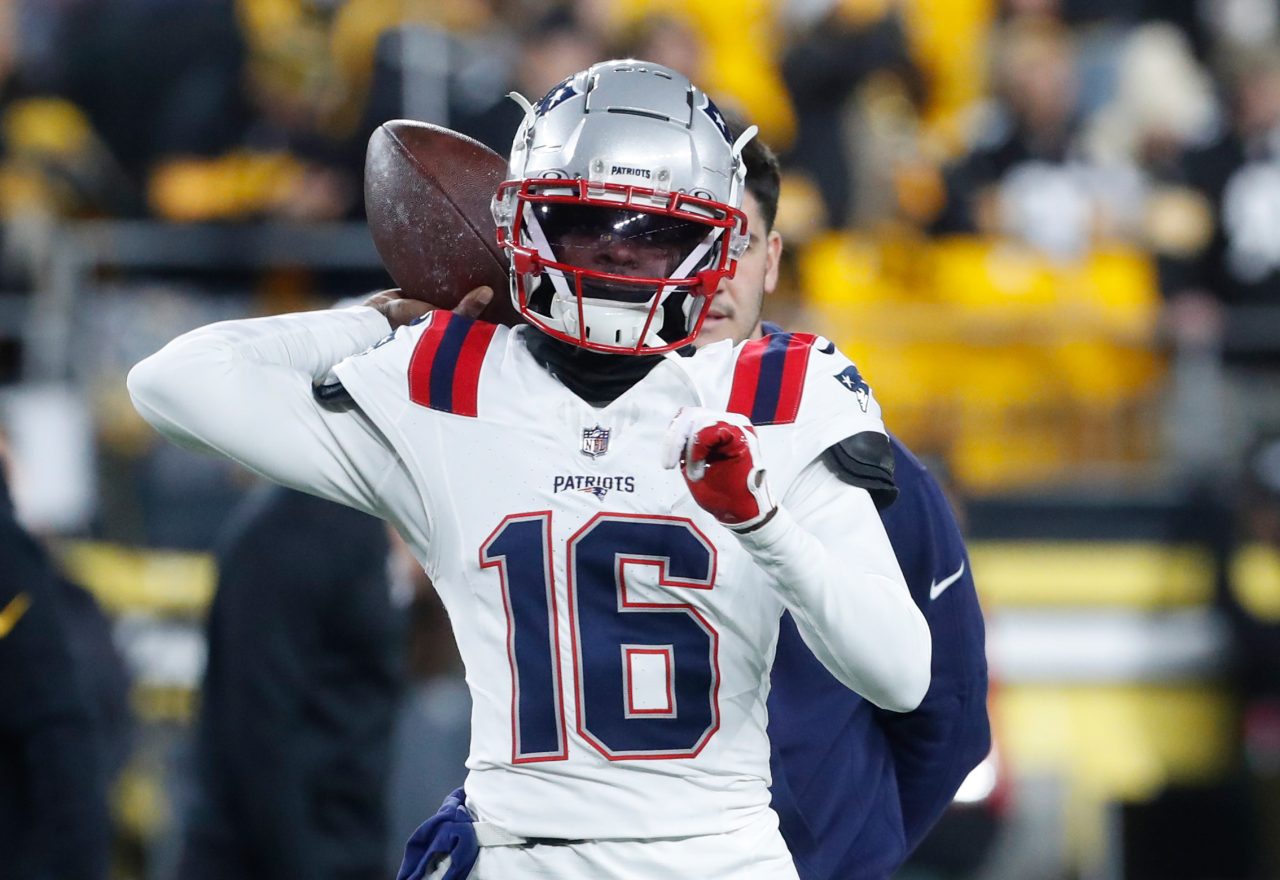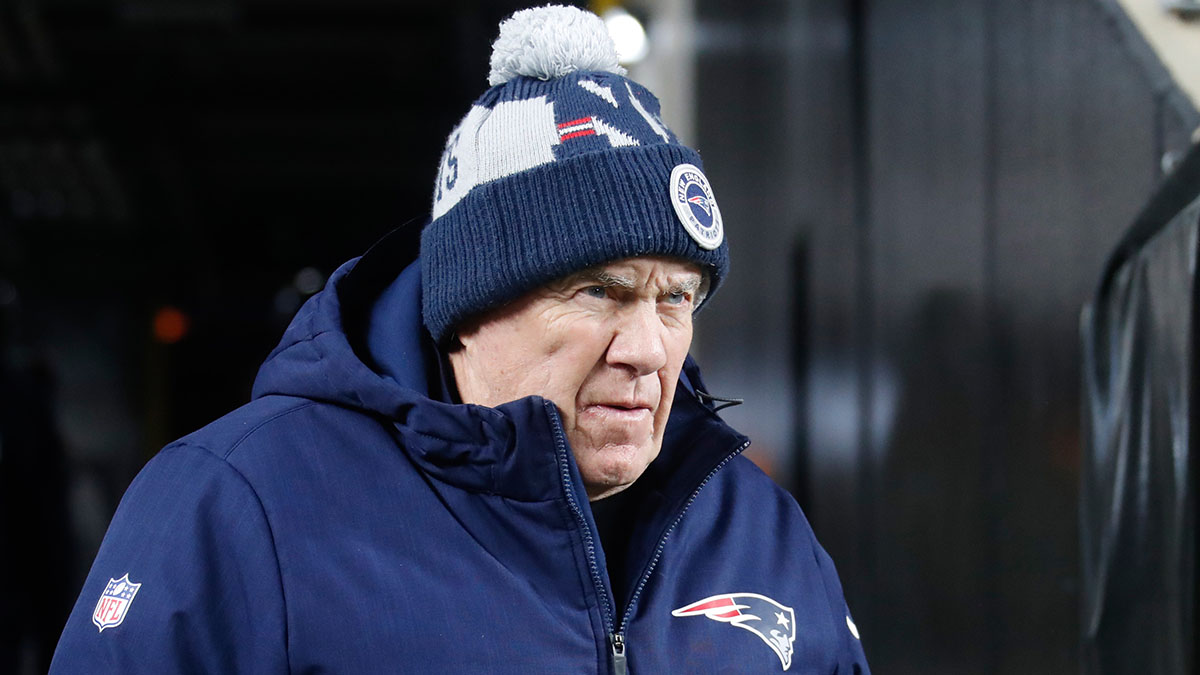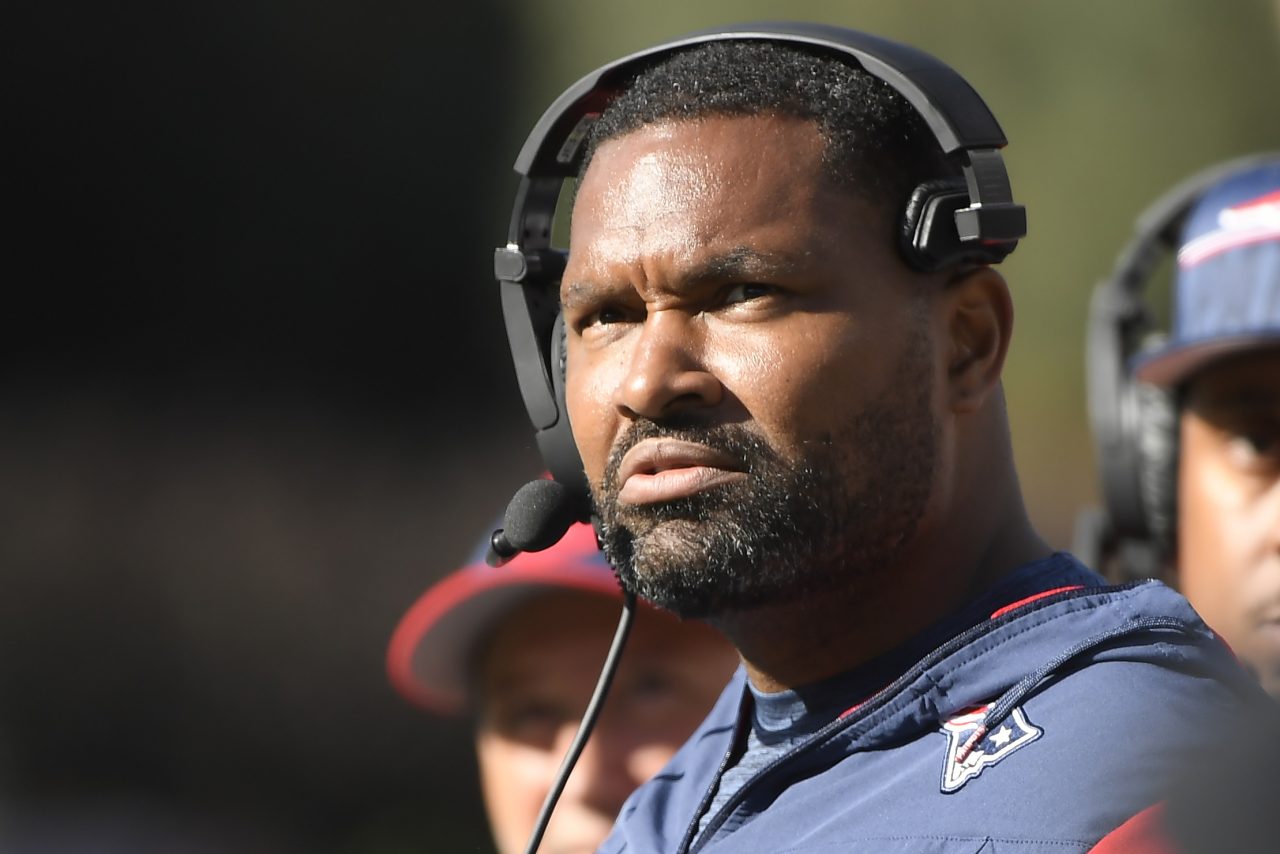FOXBORO -- Malik Cunningham has, at times this season, looked like Bill Belichick's choice as his team's No. 2 quarterback. Yet Cunningham wasn't given a roster spot for the stretch run of his rookie season, making him eligible to be plucked from New England's practice squad and added to another team.
That's exactly what happened on Tuesday, as the Ravens signed the undrafted rookie off the Patriots p-squad and onto their 53-man roster to sit behind quarterback Lamar Jackson.
The opportunity to go to an offense that fits Cunningham's quarterbacking skill set, Belichick said on Wednesday, explained his departure. But the Patriots, Belichick added, did try to keep him.
Stay in the game with the latest updates on your beloved Boston sports teams! Sign up here for our All Access Daily newsletter.
"Yeah, but I think they sold him on the opportunity, the offense," Belichick said of the Ravens. "He and Lamar. Certainly their offense suits Malik better than probably any other offense in the league does. It makes sense. As a quarterback."
Those last three words seem to be key in this instance.
MORE PATRIOTS COVERAGE
If Cunningham was given not only a chance at a real roster spot, but also an opportunity to fully focus on the quarterback position in Baltimore, that would trump what he has been handed in New England. His place on the 53-man roster in Foxboro was never secure -- he was released at the end of training camp and again mid-season after signing to the active roster off the Patriots practice squad -- and his role has been in flux since he became a pro.
As a player who at one point hoped to zero in on playing quarterback full-time following his career as a signal-caller at Louisville, Cunningham worked out for the Patriots prior to the 2023 draft at receiver. He practiced primarily at receiver and on special teams during his first training camp, getting a handful of quarterback reps ahead of the preseason opener with the Texans. He went 3-for-4 against Houston for 19 yards passing, ran five times for 34 yards and a touchdown, and he had a would-be touchdown pass dropped.
Cunningham showed enough at the quarterback spot to be named Mac Jones' backup in a Week 6 game against the Raiders, with Bailey Zappe functioning as the emergency third quarterback for the game. Later, once Jones was replaced as the starter by Zappe, Cunningham was elevated off the practice squad to provide more depth at the quarterback position in games against the Chargers and Steelers.
It's unclear to what level the Patriots made it known they'd like Cunningham to stick around. Did they offer him a 53-man roster spot? Did they offer him a 53-man roster spot but not tell him he'd be able to focus on playing quarterback? Did they offer him a pay raise to stay on the practice squad, compensating him as if he was on the 53-man roster?
Whatever the Patriots did, it wasn't enough. And now a player in whom the team has invested a significant amount of time and energy is elsewhere.
🔊 Patriots Talk: Julian Edelman on Mac, Bill and what’s next for the Patriots | Listen & Subscribe | Watch on YouTube
Belichick was right in that Cunningham has found a better schematic fit for his skill set. But after all the on-again-off-again roster maneuverings, after all of the bouncing between positional meeting rooms, after the practice reps expended, it's worth wondering now that he's gone, what was the point of all the rigamarole?
This is, in some ways, just the nature of the NFL.
You add young players. You try to develop them. You spend time on them. And sometimes, in the end, it just doesn't work out. Either the player shows he's not improving and not worthy of further investment -- which didn't seem to be the case here -- or another team likes him better and lures him away with money, opportunity or both.
But at the quarterback position -- a position at which the ability to move seems to be increasingly important with each passing season -- those young-player investments need time to provide a return. And if they are worthy of keeping in the building, they're probably worthy of keeping on the active roster in order to protect them from being vultured by another club.
Because if there is any kind of return realized from that initial investment, just given the nature of the position, it could be massive.
With the Patriots officially eliminated from the postseason, and with borderline-active-roster players like receiver Jalen Reagor, running back JaMycal Hasty, linebacker Christian Eliss and defensive lineman Jeremiah Pharms taking 53-man roster spots, it's fair to ask why the team handled Cunningham the way it did on multiple fronts.
First, did the Patriots err in not freeing up a roster spot and safeguarding a young quarterback they spent almost an entire season trying to coach up?
Second, was their approach of versatility-over-specificity the right one for Cunningham, or did it stunt his development at multiple positions and eventually leave the door open for him to leave when a more enticing opportunity came along?
Third, why tiptoe around going all-in on developing a mobile quarterback when there are myriad examples of athletic passers in today's NFL adding value to their offenses that more traditional pocket passers don't?
Add those to the list of many questions hovering over how the quarterback position has been handled in Foxboro in 2023.



